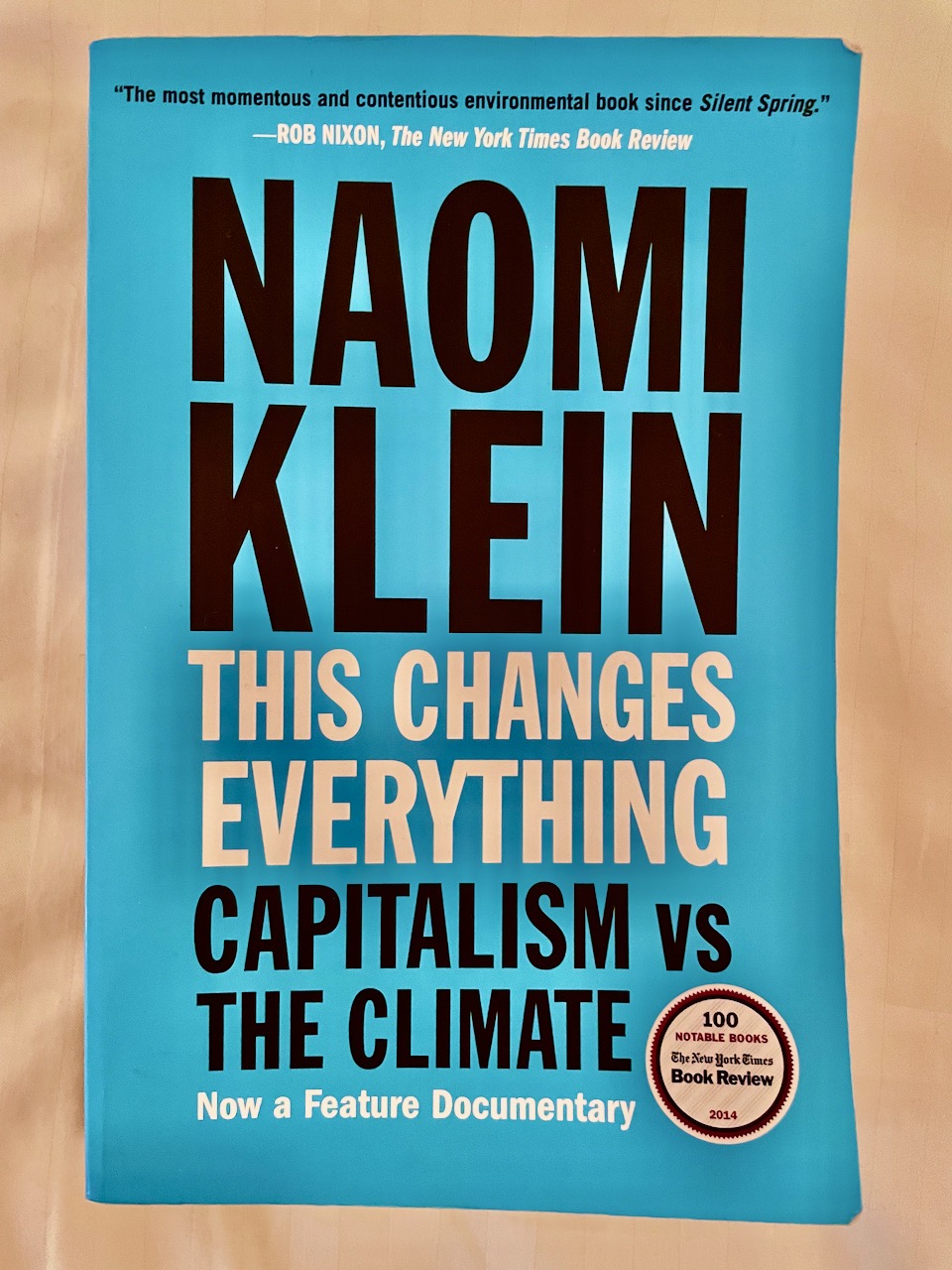I spent some time away last week catching up on reading I’d missed, including Naomi Klein’s provocative exploration of the link between globalization and climate change, This Changes Everything: Capitalism vs. the Climate (Simon & Schuster, 2014). You can read about the arguments and evidence Klein presents in this important book here. What I want to focus on is what she says about those who are fighting for clean air and water in the Pacific Northwest.
Klein devotes a long section to Northwest activists in a chapter she calls “Blockadia” (her word for the spontaneous protests against fossil fuel extraction and transportation happening around the world). After praising a coalition of Northwest Indigenous and non-Native groups that prevented huge rigs from reaching the landscape-desecrating Alberta tar sands (a “Cowboys and Indians alliance,” one activist called it), she adds:
“Indeed, the oil and coal industries are no doubt cursing the day that they ever encountered the Pacific Northwest–Oregon, Washington State, and British Columbia. There the sector has had to confront a powerful combination of resurgent Indigenous Nations, farmers, and fishers whose livelihoods depend on clean water and soil, and a great many relative newcomers who have chosen to live in that part of the world because of its natural beauty. It is also, significantly, a region where the local environmental movement never fully succumbed to the temptations of the corporate partnership model, and where there is a long and radical history of land-based direct action to stop clear-cut logging and dirty mining.” (p. 319)
It’s good to see a writer recognizing not only the current work being done in the Northwest in regards to environmental and justice issues but also the past. Klein is careful to note the importance of Indigenous people in many of these battles. The Nez Perce took the lead in the fight to prevent the tar sands rigs from using a vital secondary roadway in Idaho and Montana. And the Lummi people led the effort to block a coal-exporting terminal near Bellingham, Washington, which, in 2017, ended the multi-year attempts of coal extractors to build a facility in the Northwest to export coal to Asia.

Much of the Northwest’s early history is a history of devastating extraction: the logging of old growth timber, the over-fishing and canning for export of tons and tons of salmon, the removal from the ground of everything from coal to copper to gold. But Northwest history is also full of stories of brave opposition to these activities: tree-sitters and salmon restoration advocates and protestors who have blocked the digging of new mines.
As Klein says about a coalition that worked to stop the building of a pipeline across British Columbia, Northwesterners are well aware of how fortunate we are to still have access to pristine natural environments. We’re also aware that we have lost too many of those environments already–and that those who put personal enrichment above preservation of the planet are always seeking to profit from (and pollute) those that are left.
For further reading:
To Think Like a Mountain: Environmental Challenges in the American West by Niels S. Nokkentved (Washington State University Press, 2019)
The Environmental Politics and Policy of Western Public Lands, edited by Erika Allen Wolters and Brent S. Steel (Oregon State University Press, 2020) The digital version of this book is free through OSU’s Open Educational Resources.
Seeking Refuge: Birds and Landscapes of the Pacific Flyway by Robert M. Wilson (University of Washington Press, 2012)
Unbuilt Environments: Tracing Postwar Development in Northwest British Columbia by Jonathan Peyton (University of British Columbia Press, 2017)

Leave a Reply